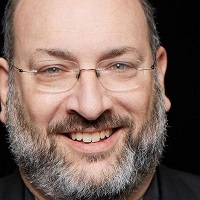 By David Harlow, JD MPH, Principal, The Harlow Group LLC
By David Harlow, JD MPH, Principal, The Harlow Group LLC
Twitter: @healthblawg
Host: Harlow on Healthcare
Hashtag: #HarlowOnHC
Scott McFarland is President of HealthBI, where he leads the organization’s health information technology platform team. The company enables real time coordination of value-based care delivery across providers by simplifying reporting by providers to payors and making resources available to providers to address patient needs. As Scott noted in our recent conversation, accountability and risk are being pushed down to the provider level today; payors are creating incentives that allow providers to assume risk, better manage patients, better manage populations. Across all of the provider sites that work with HealthBI (over 60,000 and counting) the company interacts with multiple EMRs (there are now over 100 EMR tie-ins) in order to extract data needed to report quality measures and qualify for incentive payments. As Scott said, it takes chart chasing and faxing out of the equation.
The practices get information to help address social determinants of health via the platform as well. Four years in, the company is seeing positive results in terms of gaps in care closed, across the domains of both behavioral health and physical medicine.
Scott’s definition of population health — connecting people with resources for healthy living — encompasses health care as well as social services, and focuses on the public-private partnerships that are needed to create a holistic support system for individuals’ well-being.
In response to my usual question about what we might hope to see five years in the future, Scott articulated a hope that hope that we will have brought more public health and social health resources to populations that need it; he also expressed an optimism that by bringing expertise from outside the healthcare system, partnerships such as the Amazon/Berkshire Hathaway/JP Morgan Chase healthcare collaboration may better address some of the problems we face today.
This article was originally published on HealthBlawg and is republished here with permission.
